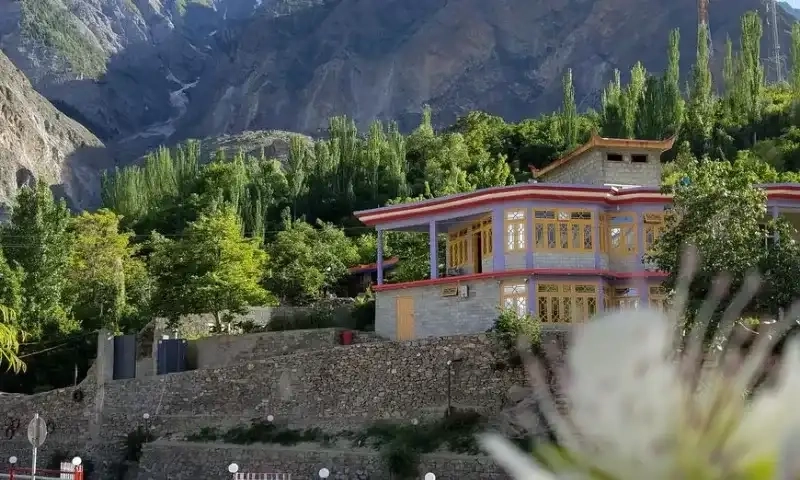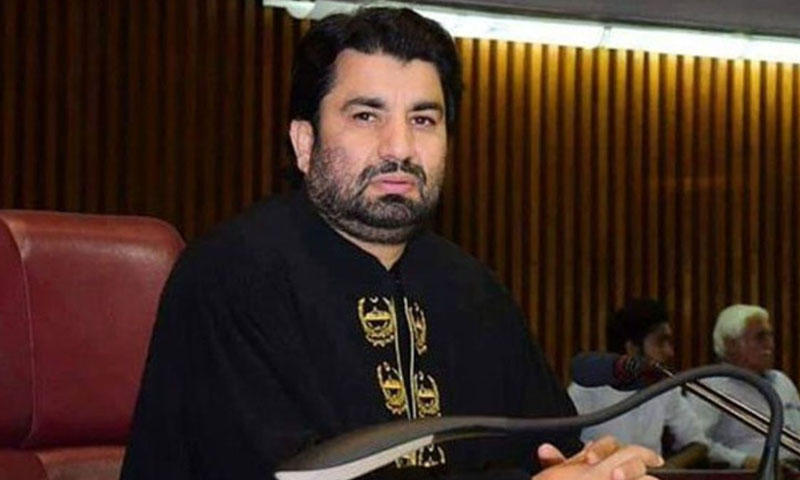- Web Desk
- Feb 09, 2026
GB-EPA seeks ban on new hotels in Hunza to avert ecological disaster
-

- Tanveer Abbas Web Desk
- Jul 14, 2025

GILGIT: The Gilgit-Baltistan Environmental Protection Agency (G-B EPA) has called for a ban on new hotel construction — including extensions of existing facilities — in central Hunza, Duiker, Attabad Lake and Borith Lake areas to protect the environment and public wellbeing.
In an official letter to the Hunza deputy commissioner, G-B EPA Director Khadim Hussain warned that unregulated hotel construction in these areas is accelerating environmental degradation, endangering public health, and undermining the sustainability of tourism.
Hunza: a valley with a small revolution among women
“Recent investigations into the improper disposal of sewage by various hotels have revealed a widespread pattern of unregulated construction lacking essential wastewater treatment systems and other faulty construction patterns,” Hussain said, emphasizing that unchecked development is compromising freshwater resources, public health, and fragile ecosystems
Central Hunza Faces Sewage Crisis
The EPA director highlighted that central Hunza’s outdated and overburdened sewage system contaminates water channels and the Hunza River.
“Water quality testing confirms sewage contamination in drinking water sources, raising risks of typhoid, dysentery, and viral hepatitis. Lack of regulatory enforcement worsens public exposure to these threats, reads the letter.
The letter said that the extensive use of diesel-powered generators by hotels contributes to air pollution, posing respiratory risks to locals and tourists. These practices contradict the region’s image as a clean, nature-based tourism destination.
Hussain noted that the region has exceeded its hotel infrastructure capacity, placing pressure on limited resources. “Further construction will result in irreversible environmental degradation and reduce the quality of the tourist experience,” reads the letter.
The EPA director recommended imposition of a five-year moratorium on all new hotel constructions and expansions in Central Hunza. “This period should be used for comprehensive Environmental and Carrying Capacity Assessments, infrastructure upgrades, and the development of a sustainable urban planning framework that respects the area’s ecological and cultural heritage along with-it carrying capacity,’” the letter adds.
Mushroom hotel construction in Duikar
Hussain said Duikar, in Karimabad Hunza, renowned for its scenic beauty and peaceful atmosphere, was undergoing rapid environmental decline due to uncontrolled mushroom hotel construction.
The letter said poor waste management harms the mountain ecosystem, while tourist activity depletes water and vegetation. The EPA proposed a five-year ban on new hotels to allow ecological restoration and implement waste management systems.
Attabad Lake Under Threat
Attabad Lake, now the primary drinking water source for Central Hunza under the Greater Water Supply Scheme, is at risk from unregulated hotel development. The letter urges a complete ban on new construction along its shores to safeguard water quality and prevent disasters like floods.
“This is essential to protect water quality, maintain ecological balance, and ensure the long-term availability of clean drinking water, as well as to prevent natural disasters such as flash floods and landslides around the Attabad Lake area. Boating capacity should also be restricted in accordance with the lake’s carrying capacity,” the letter added.
Borith Lake
According to the letter, Borith Lake in Upper Hunza is a notified protected area under Section 172 of the Gilgit-Baltistan Forest Act, 2019, and serves as an important habitat for migratory and endangered bird species. Its brackish water supports unique biodiversity in this high-altitude landscape.
Also read: Unchecked hotel boom pushing Hunza to ecological collapse: GBEPA
Hussain said that unchecked hotel development poses a threat of eutrophication due to sewage runoff, increasing the risk of algal blooms and potential collapse of the aquatic ecosystem.
“Boating activities disturb nesting and migratory birds, undermining the lake’s ecological function and international significance. A total ban on all new construction and expansion around Borith Lake should be enforced for five years. Boating and other disruptive activities must be regulated and restricted to protect avifaunal populations,” the letter added.
The G-B EPA director emphasised the urgent need for a transition to eco-friendly, community-based tourism to ensure a minimal environmental footprint, promote local economic empowerment, and protect cultural and natural heritage.
“Failure to act now will result in irreversible environmental damage to one of the world’s most treasured natural regions. Short-term gains from unchecked tourism must not outweigh the long-term health, sustainability, and ecological integrity of Hunza,” Hussain added.




